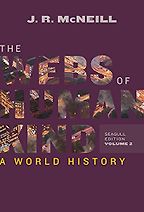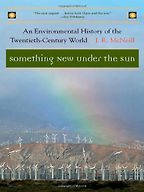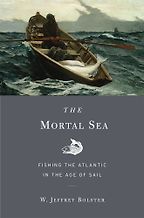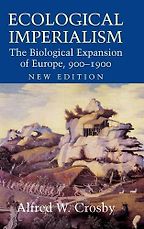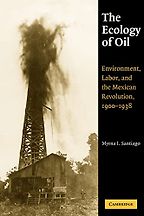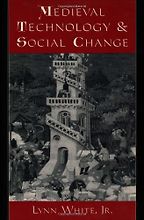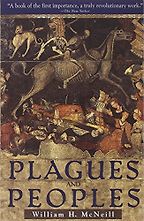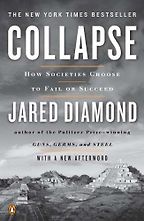
Books by John R McNeill
John R. McNeill, Distinguished University Professor at Georgetown University, has authored or edited more than 20 books, including Something New Under the Sun, listed by The Times as being among the ten best science books ever written; Mosquito Empires, which won the Beveridge Prize from the American Historical Association; and most recently The Webs of Humankind. He is a former president of both the American Society for Environmental History and the American Historical Association, and an elected member of both the American Academy of Arts and Sciences and the Academia Europaea. In 2018 he received the Heineken Award for History from the Royal Netherlands Academy of Arts and Sciences.
Something New Under the Sun
by John R McNeill
McNeill, an environmental historian, traces the technological roots of the current global environmental crisis
Interviews with John R McNeill
-

1
The Mortal Sea: Fishing the Atlantic in the Age of Sail
by W. Jeffrey Bolster -

2
Plutopia: Nuclear Families, Atomic Cities, and the Great Soviet and American Plutonium Disasters
by Kate Brown -

3
Ecological Imperialism
by Alfred Crosby -

4
The Unending Frontier: An Environmental History of the Early Modern World
by John F. Richards -

5
The Ecology of Oil: Environment, Labor, and the Mexican Revolution, 1900-1938
by Myrna I. Santiago
The best books on Environmental History, recommended by John R McNeill
The best books on Environmental History, recommended by John R McNeill
Environmental history is the study of the relationship between society and the natural world—both in terms of human impacts on the environment, and the constraints placed upon cultures by the landscapes they live in. Here, John R. McNeill, a pioneer of the field, recommends five of the best environmental history books with ambition, engaging prose, and heft.
Interviews where books by John R McNeill were recommended
The best books on Technology and Nature, recommended by Daniel Headrick
The historian explains how the power of technology has affected man’s relationship with the rest of nature, and tells us what determines why some civilisations succeed and others fail
